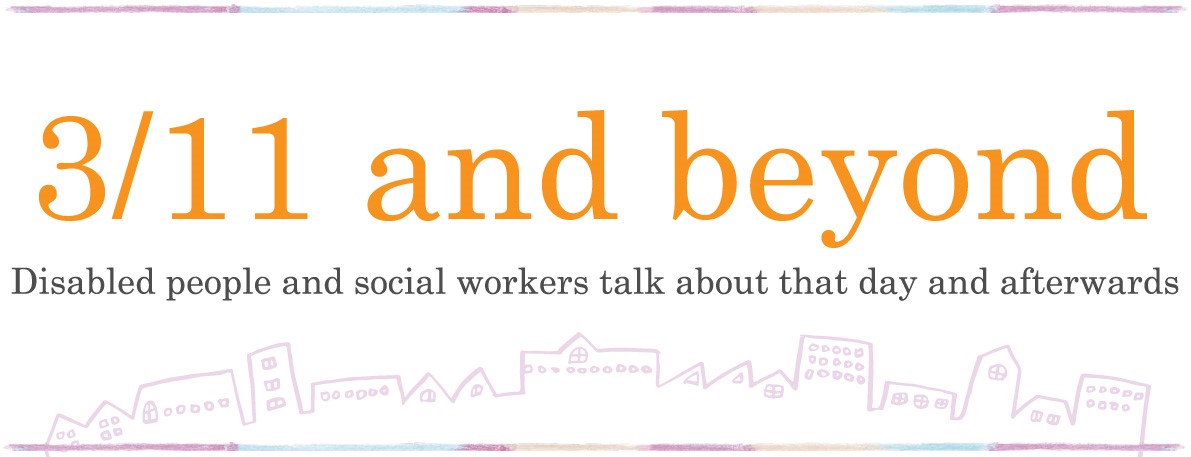Disaster experiences
Sharing experiences
Do you have any thoughts or things you want to share now?
Since that disaster, we’ve had opportunities to talk about our experience and how we prepared ourselves.
Of course, other welfare organizations located near the coast around Japan are worried that the same sort of disaster or tsunami might happen to them.
I have been invited to speak around the country for a few years now, but I sometimes wonder if my speeches are actually raising people’s disaster prevention awareness, and if people are actually putting what I say to use.
The Kumamoto earthquake was a big shock to me when it happened. I have passed on our earthquake experience and the things we did to prepare in the hope people might put it to use. However, I’ve seen how people have had the same experience in Kumamoto and various other places, so I feel like my efforts haven’t been useful.
Whenever I hear about a natural disaster, I feel really frustrated. I know this isn’t a small problem that can be solved by someone like me telling people about it, but that doesn’t change how I feel.
People’s memories fade too, and every day I think about how best to appeal to people around Japan to overcome the awareness problem, how to protect their lives in the event of a future disaster, and how to help them better understand the challenges social workers face in a disaster.
Ultimately, the only thing I can do is talk about it like this.
First, I hope that learning about our disaster experiences will be the first step for people to change their way of thinking and come to new realizations.
Social workers do face different challenges in a disaster than lay people do, so I want people in the social work field especially to understand this. Because both our trainees and our staff went through a really hard time in the disaster, and I don’t want our peers around the country to go through the same thing if a disaster happens to them.
After the disaster, a welfare organization located near the ocean in another prefecture once came to us saying they’d like all their employees to hear our workshop’s story. Later I heard that they started taking disaster prevention measures based on our experience.
I feel somehow relieved when I hear that a social welfare organization is now putting the things we told them to use to make preparations. It’s also really great when the organization doesn’t just copy the preparations and responses we adopted to protect our trainees, but discusses things amongst themselves to arrange their own strategy. It’s scary not knowing what might happen.
Remembering the disaster
It depends on the person, so we can’t do it with everyone, but we sometimes do talk about the disaster with our trainees.
One person who used to be absent a lot before the disaster started coming to Nozomi every day after entering temporary housing, but then started being absent again as soon as their house was rebuilt.
With people like that it’s sometimes better to help them remember the momentum they had right after the disaster, but there are also people it’s best not to breach the subject with. It’s hard to judge.
It’s fine for the trainees who are communicative enough to express their feelings, but you never know how it was for the ones who don’t talk about it.
Some families have told us their disabled family members have had nightmares since the disaster. So it’s affected them in different ways. We’ve come this far with all the care we could give them, but they also need our support with post-traumatic stress disorder. We haven’t provided enough of that, I’m afraid.

